For several years there has been a worldwide pilot shortage — there are so many fast growing airlines that there are more jobs available for pilots around the world than there are pilots available to fill them. As a result, it’s a great time to be a pilot, because they can afford to be selective about where they work.
Boeing estimates airlines will need a total of 637,000 additional pilots over the next 20 years.
Some airlines are offering huge salaries to lure pilots from around the world to come and fly with them. There’s regularly stories about Asian airlines (especially Chinese airlines) offering as much as $300,000 a year to foreign pilots with seemingly excellent conditions.
A few years ago Ben quoted that:
Giacomo Palombo, a former United Airlines pilot, said he’s being bombarded every week with offers to fly Airbus A320s in China. Regional carrier Qingdao Airlines promises as much as $318,000 a year. Sichuan Airlines, which flies to Canada and Australia, is pitching $302,000. Both airlines say they’ll also cover his income tax bill in China.
Recruits preferring to live outside China earn a bit less but are offered free flights home to visit family members. Also on the negotiating table: signing bonuses, overtime pay and contract-completion payouts. Earlier this year, Ross saw the monthly paycheck of a pilot he placed at Beijing Capital Airlines: $80,000.
By comparison, the average annual salary for senior pilots at major U.S. airlines such as Delta is $209,000, according to KitDarby.com Aviation Consulting. Some U.S. regional airlines pay $25,000 or less, according to the Air Line Pilots Association, representing more than 52,000 pilots in the U.S. and Canada.
Seems like a perfect opportunity, right?
PPRuNe
PPRuNe stands for the ‘Professional Pilots Rumour Network’ and is a forum that is a bit like FlyerTalk for pilots, cabin crew and other airline staff. There are some private forums dedicated to crew for particular airlines that only allow current staff to view and contribute to that forum — you would need to submit your name and staff ID to gain access.
But there are various public pilot forums, which allow users to write whatever they like on various threads and topics, under user names they select (much like FlyerTalk).
Last week I spent hours down a rabbit hole reading thread after thread, page after page about the various experiences of pilots who have moved to Asia to take up these lucrative opportunities.
And it was fascinating.
I had expected that other than some cultural differences they would live fabulous, glamorous lives, making more money than they knew what to do with, and setting themselves up for life.
While the money is indeed good, there are so many other factors I had never even expected, that I read about and thought would be interesting to share with you.
But first, some caveats
PPRuNe is an anonymous forum where anyone can write anything they like under the username they choose. I could pretend to be an A380 captain if I wanted.
No one writes under their actual name or provides many identifying detail about themselves. So, I cannot confirm that every single thing they say is correct.
For these reasons:
- I won’t be mentioning any specific user names, airlines or countries, other than to say that there were similar themes across various Asian airlines that included, but were certainly not limited to Chinese airlines, and these were both full service and low cost
- I won’t be linking to any specific threads or mentioning any specific users. You can go and read about what they have said in more detail if you are interested — I read hundreds of pages across many different threads
- I am certainly not a pilot and don’t pretend to understand all of the very technical information they have written about, especially some of the abbreviations and ‘industry speak’ they have used. If I do get any technical information incorrect I apologise!
- I have no reason to doubt what these users have posted as they have revealed inside knowledge of specific airlines (and some users have replied back and forth to both confirm what other users have said, and indicate they know each other personally) and provide extremely detailed knowledge of flying, however I don’t want to represent what they have said as gospel truth
- I expect (and hope!) we have some pilots readers here at OMAAT and I’d love to know what you think about what I’ve found on PPRuNe — I won’t get too deep into the technical speak as I don’t want to get it wrong, but I greatly respect what you do each day!
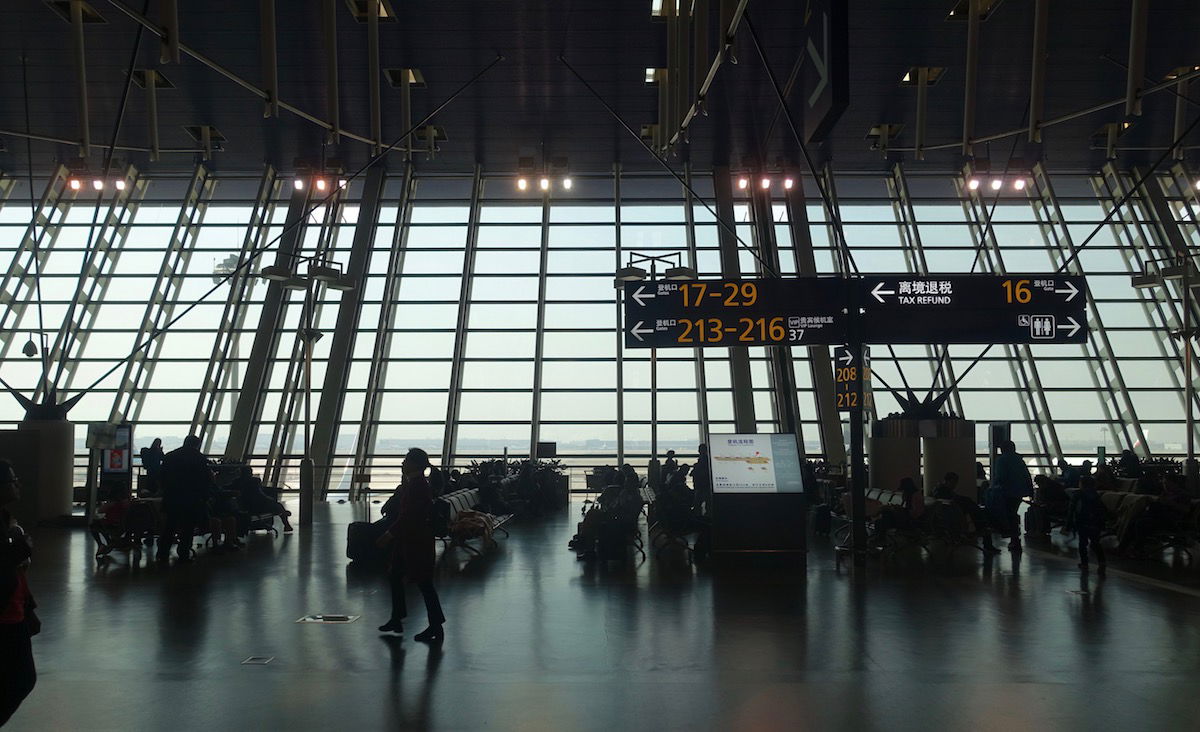
Life as a pilot in Asia
So in no particular order, here are some of the insights users have posted about as “Western” expat pilots living and working in Asia, for Asian airlines:
Pilots are indeed highly paid
However the advertised yearly salaries (of up to USD$300,000) are actually only achieved by working the maximum permitted overtime, which many pilots cannot do even if they wish to. ~$12,000 per month (so around $150,000) is a far more common salary. Pilots are usually offered three year salaries with a big bonus offered at the end of the three years, although many pilots don’t make it to the three year mark for the reasons below.
To save as much money as possible (which is the goal of many expat pilots), they need to live in a city that has a low cost of living, which means living outside of the major cosmopolitan Asian cities and instead basing themselves somewhere where there are very few other expats and locals who speak their language.
Some pilots do commute from outside of Asia, although this is becoming less common because there is less flexibility for the airline to change their rosters last minute and the airlines prefer to hire pilots (local or foreign) who can live at their local hub.
Schedules & rosters
Rosters can be as intense as five days on, 36 hours off, and then another five days on. Because of this, fatigue is a massive problem, with some airlines not listening to their pilots’ concerns on the risk of this fatigue. Some pilots spend less than seven nights a month sleeping at home.
Some airlines only publish rosters weekly, only a few days in advance. This means last minute leave requests are rarely approved.
Recruitment tactics
Some airlines advertise for foreign pilots to work the mainline (full service) flights, but at the end of the recruitment process may say there are no roles available. They then offer them a contract flying for the low cost arm, and pilots believe this is a ‘bait and switch’ tactic to attract talented pilots to less desirable airlines.
Similarly, expat pilots are lured to certain airlines with the promise that the airline will be opening a foreign base somewhere more desirable to live than their local bases. The reality is that the foreign base will either never open, or if it does, those places will be given to local pilots, not expats.
Job stability and security is lower than just about any other region in the world
There are tough assessments every six months (SIM, technical) with failure rates as high as 50%. And the medical pass rate can be as low as 60% with ‘perfectly fit’ pilots regularly failing medical tests.
Where an airline (or even a high speed train) has a safety incident, all airline pilots in that country are sent for retraining.
Any safety breaches, no matter how minor, are investigated, and pilots can be suspended without pay for months at a time, for infractions as minor as ‘heavy landings, or flying at an altitude that is considered too high.’ If one of these pilots commuted from outside of Asia (or the hub of that airline), they might be required to serve this suspension in the home city of the airline, despite the fact they do not live there, nor are they being paid to be there.
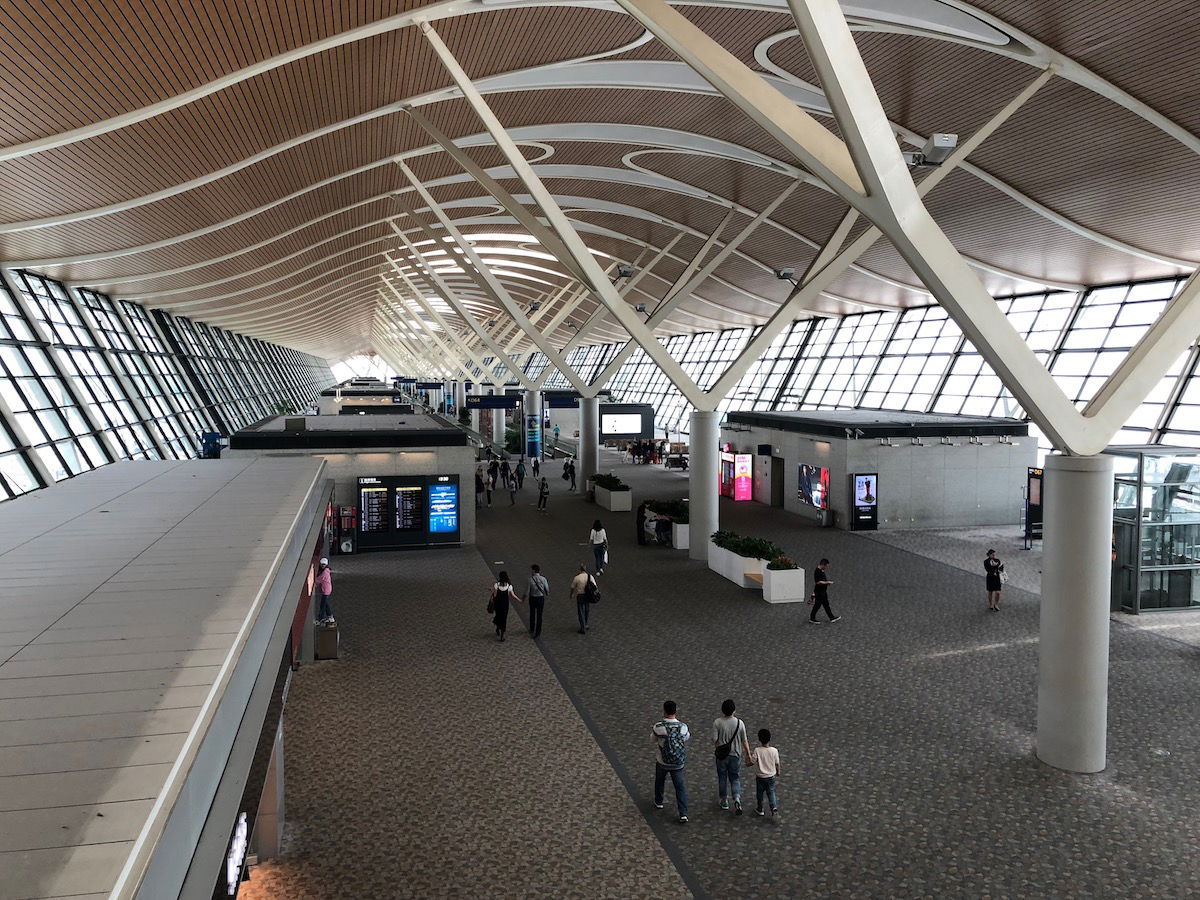
Language barriers
Training can be conducted in the local language despite the expat pilots not understanding that language. Safety review meetings are often conducted in the same manner.
Many company documents and communications are in a local language, and not translated into English or the local language that the expat pilots would speak.
Culture
Expat pilots generally get along well with local pilots and are treated extremely well by cabin crew — it is the airline management that have issues with, if any.
Smoking does occur in cockpits (more on some airlines than others), although local pilots will usually stop where they are flying with a fellow pilot who does not smoke.
Layovers
The hotels provided to pilots during layovers (i.e. away from their home airport) can be appalling quality — less than two stars with inedible food. Some pilots pay for better accommodation from their own pockets while down route just to get some decent sleep. Some pilots bring their own food for trips because they cannot physically stomach the food given to them.
For some airlines it is a breach of their contract for a pilot to pay for their own accommodation at a superior hotel.
This was probably what surprised me the most as I assume pilots would be given excellent accommodation.
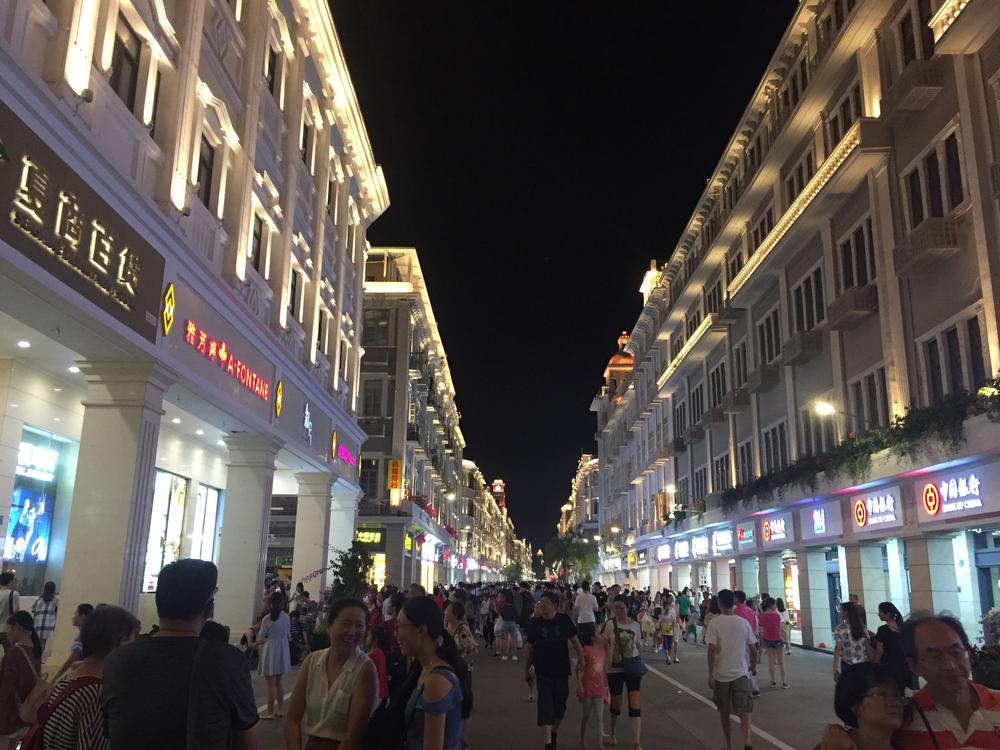
Safety
Pilots are personally fined for any safety breaches (i.e. they are required to pay fines from their own pockets), and some become too scared to report any minor violations because of the consequences they consider to be too severe.
Pilots are usually restricted from carrying additional fuel for contingencies (because this makes the plane heavier) and have to argue a very strong case for carrying extra fuel.
Some pilots find the approach to safety to be weirdly inconsistent — their own minor safety breaches can be punished too harshly, yet training, and other safety management can actually be insufficient, especially if it is not conducted in English. They do not consider these airlines to be particularly safe with one forum even inviting users to vote on which airline will suffer the next ‘hull loss’.
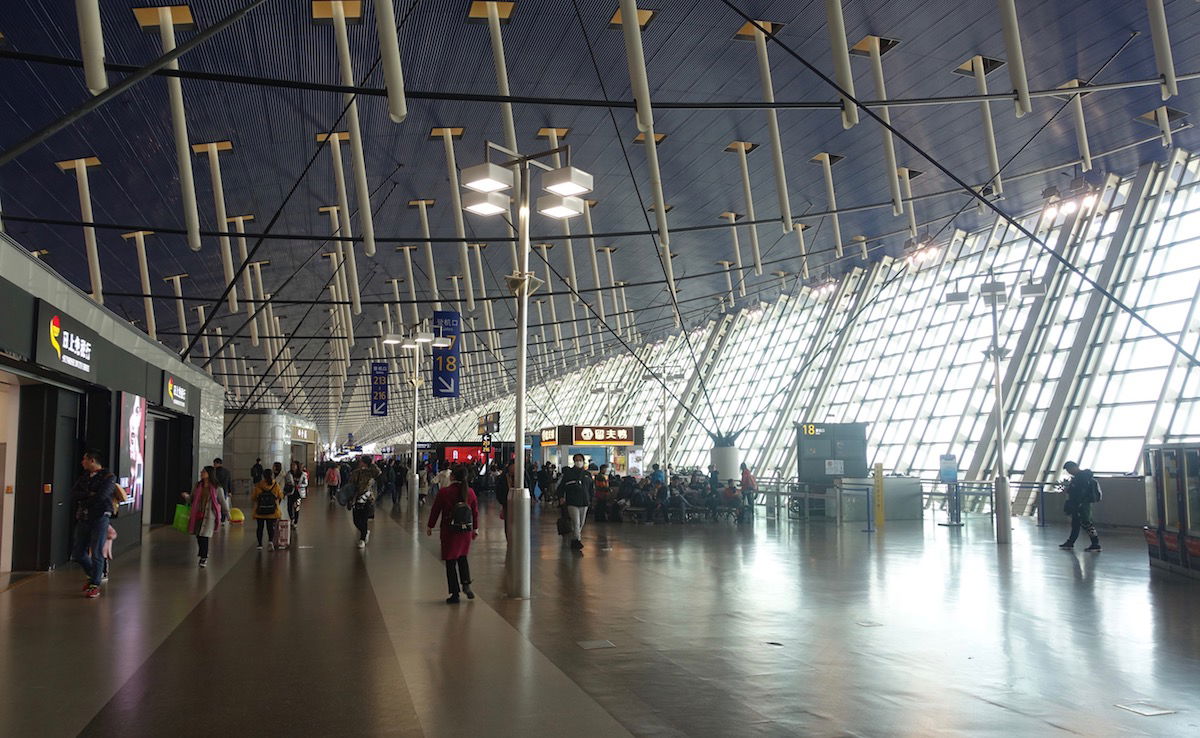
Bottom line
I’m not saying what I have written about above is the gospel truth, they may be nothing more than rumours by individuals with an axe to grind.
I haven’t included images of any planes, as if they showed the livery it would suggest these issues apply to one particular airline. I’ve purposely kept airline names out of this because the issues are spread across multiple airlines, so it would be unfair to single out just one (although the sometimes unfair punishment of minor safety violations was common across just about every Asian airline I read about).
But I do find it fascinating if this is how many pilots in Asia actually live. It’s certainly not the amazing lifestyle I expected it to be. Suddenly living in the Middle East doesn’t seem so bad!
Do we have any pilots here? I would love to know what you think of all this?
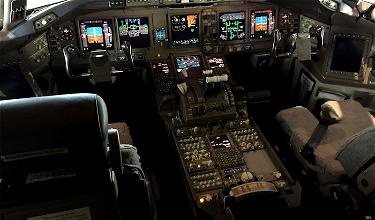

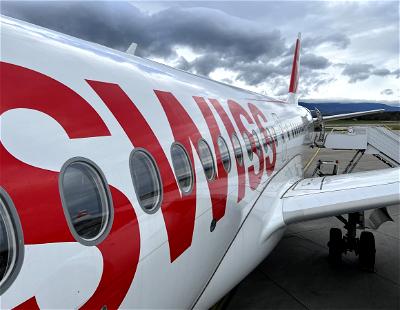

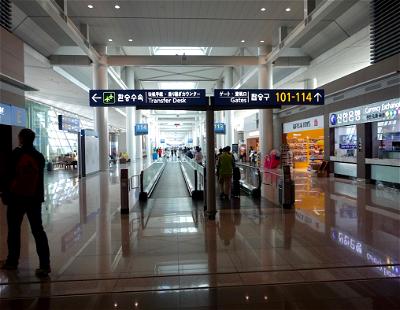
@Bones26 - if those two are both there working for a Thai employer, I don't think it's too much to expect them to converse in Thai.
Travel to a country in East Asia (such as South Korea) and you'll find more people knowing Mandarin than English. Then add the billion people in China to it, and you have a whole region of airports, airlines, and customers who are more comfortable with Mandarin than anything else....
@Bones26 - if those two are both there working for a Thai employer, I don't think it's too much to expect them to converse in Thai.
Travel to a country in East Asia (such as South Korea) and you'll find more people knowing Mandarin than English. Then add the billion people in China to it, and you have a whole region of airports, airlines, and customers who are more comfortable with Mandarin than anything else. Pilots working within the region without knowledge of any Mandarin poses more safety concerns than airlines operating there who don't conduct 100% of their business in English.
I'm not arguing for the pilots or their employers to have anything less than a proficient command of English. Quite the opposite, as I agree with you that English is the most convenient language world wide. But it is irresponsible for an employee who doesn't understand the language 99.9% of his customers speak to blame his local employer for not catering everything to his language of preference.
As I stated before, if the Chinese pilots trained in a way that makes them incapable of communicating with air traffic controllers in English, then it's a huge safety problem that needs to be solved immediately. But that's not the issue here, is it?
@Peter- If a Dutch person goes to Thailand and meets a person from Russia what language do you think they will use to communicate? It won't be Dutch, Thai or Russian and almost defiantly not Mandarin.
US Flyer is dead on. English is the common language for aviation for safety reasons specifically.
@USFlyer - are you suggesting that ICAO's requirement for English proficiency directly translate to a requirement for all airlines to conduct internal business in English also? If somehow these non-English activities are illegal or violates professional best practice, it's a huge deal and affects far more than the pilots' happiness. If it's just the individuals not understanding their employers' language of choice, that's an entirely different topic.
@Peter - you're wrong about the language issue. English is legally the international language of aviation. All the air traffic control communications are either conducted in English by default, or at least English is available on request. Moreover, all the aircraft manufacturers' training and maintenance literature is in English, as well as the actual operating procedures of aircraft. International Civil Aviation Organization (ICAO) requires English proficiency in order to fly. Yes, even US pilot licences...
@Peter - you're wrong about the language issue. English is legally the international language of aviation. All the air traffic control communications are either conducted in English by default, or at least English is available on request. Moreover, all the aircraft manufacturers' training and maintenance literature is in English, as well as the actual operating procedures of aircraft. International Civil Aviation Organization (ICAO) requires English proficiency in order to fly. Yes, even US pilot licences say "English Proficient". There is a reason why all reputable airlines all over the world train and fly in English.
If anyone is interested - search for an internet book "Flying Upside Down". It's written by a young US pilot who left a poorly paid job at home to fly in China. It's entertaining reading, and while he likely "turned up the contrast", all the technical details are true, and I don't doubt the big picture.
Another thought - these are not expats we're talking about. These are people who relocate to foreign countries to seek employment with local businesses. While I'm sympathetic to the challenges a professional faces while getting acclimated to all aspects of life in a different culture, shouldn't those challenges be expected part of the deal? To call food inedible is immature if it's at the standard of millions of locals. And if nobody expects the Silicon...
Another thought - these are not expats we're talking about. These are people who relocate to foreign countries to seek employment with local businesses. While I'm sympathetic to the challenges a professional faces while getting acclimated to all aspects of life in a different culture, shouldn't those challenges be expected part of the deal? To call food inedible is immature if it's at the standard of millions of locals. And if nobody expects the Silicon Valley to conduct business meetings in various Asian languages for their engineers, is it right to complain about these airlines not offering training in English? Having interpreters present already seems "above and beyond", even if they may not be UN-level interpreters.
While I would like to see continued improvement in labor conditions in Asia (curious what libertarians say about that), some of these complaints really seem egocentric and out of touch.
Seems odd to see the mention of someone earning $150k having to compromise living locations in Asia - unless we're talking about Singapore or Shanghai CBD, or an extremely frugal individual with aggressive savings goals. $150k is high by US standards and most Asian cities are far more affordable than the average US city, so...
@Salaryman: Worked in Singapore for 5 years, have a Singaporean partner, they enjoy their weekends as much as anyone. I never heard of a Singaporean colleague or my partner going into the office on a weekend with a Starbucks. Granted, they tend to have fewer vacation days than Europeans, but about the same as Americans and I did not find Singaporeans worked particularly longer hours than my working experiences in London and New York.
@Salaryman
Well Put!
Make perfect sense.
Many smaller (albeit still >5 million population..) cities in China just don't have five star airport hotel infrastructure lol Would you expect a Ritz or even a Sheraton at Cheyenne, WY lol
Well, no disrespect, but if you can't accept and adapt to the local working and living culture, just don't go/work there, no need to say who's right or wrong.
Chinese airlines have immaculate safety record. As said, if any air or train travel incident happens, everyone goes back to retraining. While that doesn't sound so pleasant as a pilot, shouldn't it reassure how serious the authorities take these types of accidents? Although granted smoking...
Well, no disrespect, but if you can't accept and adapt to the local working and living culture, just don't go/work there, no need to say who's right or wrong.
Chinese airlines have immaculate safety record. As said, if any air or train travel incident happens, everyone goes back to retraining. While that doesn't sound so pleasant as a pilot, shouldn't it reassure how serious the authorities take these types of accidents? Although granted smoking is an issue..
Chinese corporations (similar case in most Asian countries actually) have little respect for the quality of life for employees, but are therefore extremely effective at economic output. Children in China (same in Korea, Japan) grow up under constant competition and stress. Such is culture. If you can't adapt, go somewhere and enjoy life, no one is forcing you. Just don't pretend to be superior because you go to brunch every weekend with bottomless mimosas while in Beijing/Tokyo/Seoul/Singapore people grab a Starbucks and go to work.
This article focuses on and singles out China. There are other up-and-coming airlines across the world that I know who have recruited foreign pilots and I have talked with them about their experience which seems much better than what the website comments describe.
"But I do find it fascinating if this is how many pilots in Asia actually live. It’s certainly not the amazing lifestyle I expected it to be. Suddenly living in the Middle East doesn’t seem so bad!"
That is so true James though it makes sense as Chinese airline can apparently be quite skimpy on accommodation and food though also quite good. Though airlines like Emirates apparently get the best hotels (for crew to stay in) and the bets food etc.
@Hugo @Callum. I currently work for a Japanese Airline as FA. It is fairly well paid position here. However you have to remember that you work with asian majority who view foreign base crew and pilots alike as a necessary evil. Whilst perks are good and salary is decent the working condition, lack of transparency and weak colleague relations are continuous issue that all expats working her face everyday.
Expat in Hong Kong, in a different field, but a lot of this rang true. Money is great but management style and cultural differences are huge. Not much willingness for the other party to understand where non-locals are coming from and use our differences as a strength.
The money and travel has been great, but it's time to move on to somewhere with less money but more transparency and less crap to deal with.
@Hugo
Yes it's ignorant of you.
Getting a pilot up to the level of being ready to fly an airliner takes a longer time and importantly cost far more that trolley dolly training.
Even a Zero to hero cadet program with an airlines will take at least 1 year, probably more like 1,5 year for a First officer on a single aisle airliner. Cost $100k++ for basic frozen ATPL and 300 hours in the air,...
@Hugo
Yes it's ignorant of you.
Getting a pilot up to the level of being ready to fly an airliner takes a longer time and importantly cost far more that trolley dolly training.
Even a Zero to hero cadet program with an airlines will take at least 1 year, probably more like 1,5 year for a First officer on a single aisle airliner. Cost $100k++ for basic frozen ATPL and 300 hours in the air, on top of you got type rating costs depending on the airplane type. Only apply outside the US of course, in the Us a First officer require 1500 flying hours before they can even join an airline.
Quite frankly the only region that hires stewards from the outside is the middle east and the ME3 in particular.
China has more than enough people to fill out the roles in the back will to work for much lower wages that what you will make in Europe.
Same goes for the rest of Asia, heaps and heaps of young people looking for jobs. Willing to work for much lower wages than you.
It's simply because aviation in China (and some other Asian countries) grows so fast that they don't have enough experienced Captains for now since it takes several years for an First officer to get enough experience to change seats, the minute enough local pilots gain enough experience you will see the foreign pilots getting kicked out fast.
Good luck with your search.
@Hugo,
Also Asian airlines still typically hire young attractive girls to work as flight attendants.
Flying is tough enough...I know! $12K/month salary but living under these conditions and constant stress and getting homesick and etc. is just not worth it. A lot of "bait & switch" going on with many airlines especially the ones in Asia. Stay in the US, make less to start with (unless you are a Senior Captain), but have a great quality of life.
Hugo - Without meaning to sound demeaning, flight attendants are not a particularly highly skilled position (not that I'm saying it's unskilled or easy). They are easy to train - pilots are not.
I can't imagine there ever being a need for a big expat FA community. It's a relatively low paid job where supply presumably equals or exceeds demand.
Not to mention if you wanted to work for a Chinese airline in a customer...
Hugo - Without meaning to sound demeaning, flight attendants are not a particularly highly skilled position (not that I'm saying it's unskilled or easy). They are easy to train - pilots are not.
I can't imagine there ever being a need for a big expat FA community. It's a relatively low paid job where supply presumably equals or exceeds demand.
Not to mention if you wanted to work for a Chinese airline in a customer facing role you'd need to be fluent Mandarin and/or other local languages - I assume you're not?
Thank you
You did a great job getting across some good, basic information we would probably ask about.
Interesting to see that the high $$$’s are not obtainable. Never thought about their layovers.
Thanks
I’m a dutch steward in training right now on a general program (no airline is attached) and I am looking for good opportunities worldwide. China has been facinating me for a long time and I’m questioning if there are also a lot job avaibility in Asia. This might me more difficult because of cultural aspects. Is it even worth looking into to move towards china as a steward? It seems like with all of the...
I’m a dutch steward in training right now on a general program (no airline is attached) and I am looking for good opportunities worldwide. China has been facinating me for a long time and I’m questioning if there are also a lot job avaibility in Asia. This might me more difficult because of cultural aspects. Is it even worth looking into to move towards china as a steward? It seems like with all of the new start up airlines and new orders being placed I think it’s quite odd that there aren’t as many FA’s being recruited as there pilots. Is this ignorant from my side or is there a logical explanation for? Thanks in advance
All of this makes me concerned regarding the safety of my upcoming China Eastern trans-pacific flight. What's the safety like for the big 3 Chinese carriers on their flagship long-haul routes?
As someone who spent several months at the training center of a major Asian airline, I find most of the above points to be accurate and match my experience. I want to also share some of my thoughts/observations, in no particular order:
- The quality of pilots (much more so with regional carriers) can be extremely wacky. In my case I was flying with 2 trainees from a smaller company who were grossly unprepared,...
As someone who spent several months at the training center of a major Asian airline, I find most of the above points to be accurate and match my experience. I want to also share some of my thoughts/observations, in no particular order:
- The quality of pilots (much more so with regional carriers) can be extremely wacky. In my case I was flying with 2 trainees from a smaller company who were grossly unprepared, and even crashed in the sim during many of the exercises
- Money and class can indeed help with recruiting and/or medical exams
- Foreign pilots are treated significantly better and with much more respect than locals
- The instructors I've worked with spoke little to no English. Foreign pilot trainings are conducted with the presence of a translator, who has little to no aviation background and often struggle to communicate too
- Most companies will max our the monthly and annual hours allowed to be flown by a pilot
- From my conversation with other pilots, their average duty cycle is 3-4 days on, 1.5-2 days off
I understand why Middle East airlines (EK/QR/EY) recruit expat pilots and flight attendants. However, given the size of the population in China, I'd imagine all the Chinese airlines need to do is train locals (like what EK is doing... ;)) and after a few years, most if not all expat pilots may lose their jobs since they're paid so much higher than local Chinese pilots (presuming this is true.) From reading your article, it seems...
I understand why Middle East airlines (EK/QR/EY) recruit expat pilots and flight attendants. However, given the size of the population in China, I'd imagine all the Chinese airlines need to do is train locals (like what EK is doing... ;)) and after a few years, most if not all expat pilots may lose their jobs since they're paid so much higher than local Chinese pilots (presuming this is true.) From reading your article, it seems like the airline management can make up any reason like failing a medical test or what not.
Also, there are no pilots union in China. Sure there are pros/cons to this but for an American pilot to move to a foreign country where job security may be questionable for $150k a year? Hmmm.. I'd probably skip it too.
@snic , I am sure he was talking about within walking distance from the factory not the entire Shenzhen. Those places are catering to low pay workers and what do you expect? May not too bad in taste though.
To James's article, I am not surprised. Did you guys ever look at glassdoor? Any company you will see a lot of complaints. That is what people do! If you are very satisfied with your life and work, why would you go there to opine?
I have flown for two private companies one in Hong Kong the other Jakarta. Great jobs, above average compensation. Housing, medical and a lot more perks. My last job I was working 2 months on 2 months off. You keep full salary + bonus for the full year. I became Diamond at Shangri-La group that basically became my home 100% company paid. There are some SWEET flying gigs in Asia.
Very interesting article written on a topic I've often thought about: Why US pilots (especially those working for low paying regional airlines) wouldn't jump on a chance to work overseas.
Like all professions, it pays to thoroughly research an employer before jumping onboard. It's good that forums help open the dialog.
Interesting article. Thanks.
I really enjoyed this article! Super interesting!
As an Expat living in China and Korea for the past 8 years, this is all par for the course. Pretty much anyone who hasn't come to Asia as a top manager or for a top foreign firm has had similar experiences. For me, it's been totally worth it, but most of these stories will ring true to expats in a wide variety of fields.
@Paul it's decision that people of different professions make all the time. My friend's father moved to South Korea for 5 years to work for Asiana. Wife and youngest kid moved with him, older daughters stayed at home. It certainly set them up financially but he was doing well before and after that contract.
It's true that he had more money than he needed, so invested a lot and setup all kids by buying them properties, etc. He never led flashy life style.
"Where an airline (or even a high speed train) has a safety incident, all airline pilots in that country are sent for retraining."
All airlines in the country, or in that airline in that country?
Does "safety incident" mean crash, or also near misses?
This may be a big or a small issue.
I would regard it as fairly standard in many industries that after a major incident which throws up a new...
"Where an airline (or even a high speed train) has a safety incident, all airline pilots in that country are sent for retraining."
All airlines in the country, or in that airline in that country?
Does "safety incident" mean crash, or also near misses?
This may be a big or a small issue.
I would regard it as fairly standard in many industries that after a major incident which throws up a new risk, everybody relevant has a mandatory one-hour session.
But if we are saying that even for a breach by one person of a well-known procedural requirement, everybody has to go on a one-week course then that's overkill.
Did you get any indication of sizing?
P.S. Congratulations on showing the Daily Mail what a meaningful analysis and precising of a forum topic looks like, rather than their typically very shallow attempts!
@greatmoosy Lots of the kitchens in Shenzhen have cameras, you can watch them cook from the dining room. Some sort of local health department initiative
I enjoyed this post, thanks!
@snic, so long as you don't peek into the kitchens, most of the shenzhen restaurants will seem presentable. but where the factories are, out there in the boonies, it's an exponential gamble
Why does the author mention Asia in every other sentence, when this is clearly about China.
ME is mostly expat pilots, who prefer to live there. SE Asia except one doesn't need expats.
Japan and SK can't assimilate expats.
Rest of the Asia doesn't fly.
Half researched BS article.
@ RB - I'm referring to airlines in about six different Asian countries, both North Asia and South Asia.
'The rest of Asia doesn't fly'??
In July, we flew Cathay Dragon with a French pilot and Qatar with an Irish pilot. Was thinking about how ex-pat pilots make that decision to go overseas. Interesting article.
Fascinating article. Thanks!
So generally speaking, Asian countries suck including their airlines. What a non-shocker. But as long as we can redeem points in Bali, who cares!
I know they could be all false statements but don't surprise me. I am guessing you mean China when you say Asia but not ME? Do you know the conditions in ME? I hear QR pays more than EK but harsher work environments. Is it considerably worse than Chinese pay? Why would pilots go to China if the pay difference is not much in the ME? Or is it equally bad at QR or EK?
James, this is BS. You clearly are not with the OMAAT program yet.
You need to tell us once a day how great chase and amex cards are and why we need them in our lives.
@ Debit - I'm sure you could use Chase points to book a flight on an Asian airline and hopefully you'll have an expat pilot! ;P
This is an extremely interesting article about something I've been really curious about, the quality of your posts are unparalleled.
Thanks for taking the time to do this!
I know an Apple engineer who commutes to China every few weeks. This person says the food available in the vicinity of the factories that manufacture Apple products is so greasy and inedible that it's imperative to bring one's own from home.
I was surprised. Not a single noodle shop in Shenzhen?
Not surprised to hear all the qualifiers attached to the “high” salary.
As a physician, we get bombarded with recruiting offers as well to practice in rural areas for high salaries. With few physicians to cover and less regulation of hours, achieving that high salary comes at a price. I can see why not all US pilots are fleeing the country.
I'm not entirely sure why you were expecting glitz and glamour. Particularly high pay for similar work is generally compensation for putting up with otherwise unpleasant conditions.
It's China...I'm not sure what they were expecting. Fun place to visit, wouldn't want to do business there.